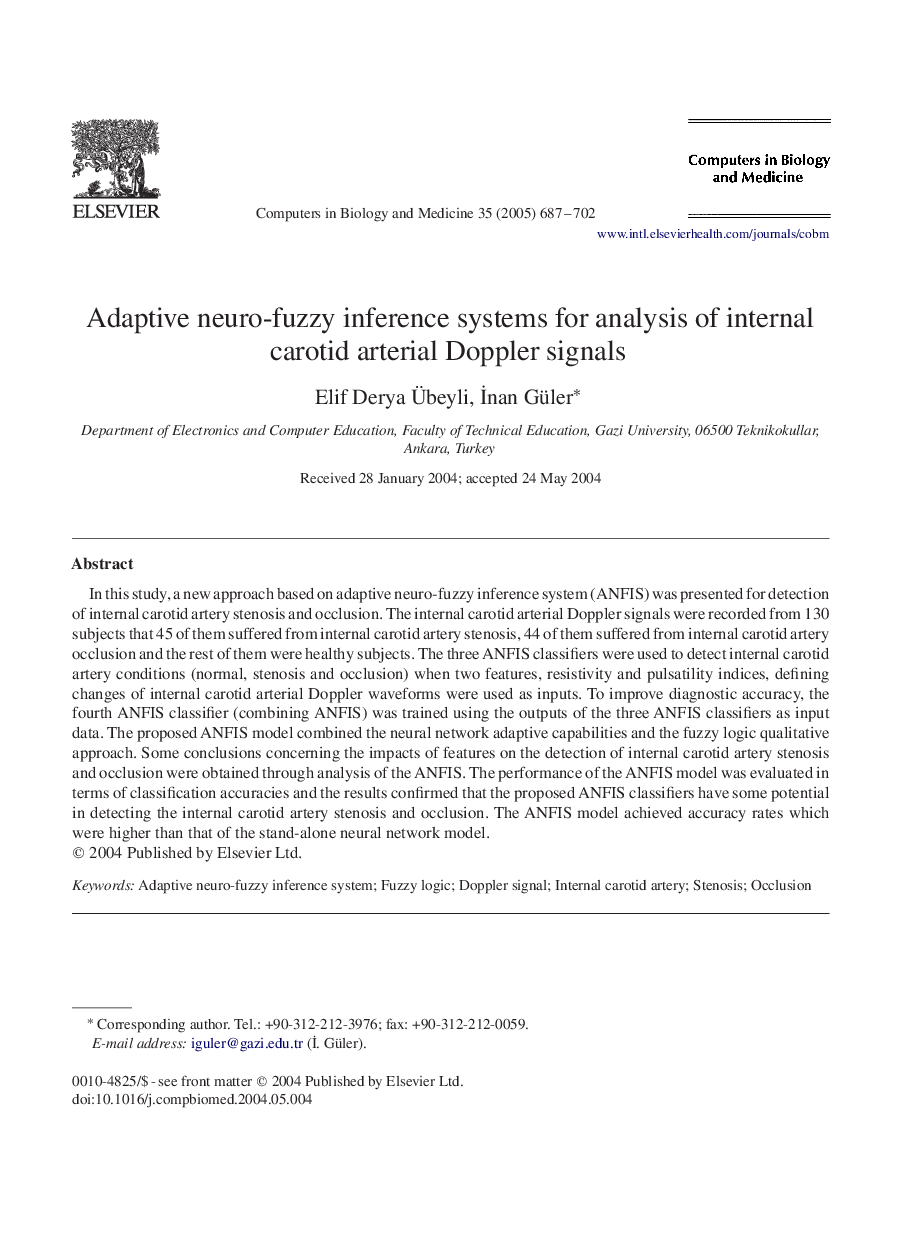| Article ID | Journal | Published Year | Pages | File Type |
|---|---|---|---|---|
| 10351911 | Computers in Biology and Medicine | 2005 | 16 Pages |
Abstract
In this study, a new approach based on adaptive neuro-fuzzy inference system (ANFIS) was presented for detection of internal carotid artery stenosis and occlusion. The internal carotid arterial Doppler signals were recorded from 130 subjects that 45 of them suffered from internal carotid artery stenosis, 44 of them suffered from internal carotid artery occlusion and the rest of them were healthy subjects. The three ANFIS classifiers were used to detect internal carotid artery conditions (normal, stenosis and occlusion) when two features, resistivity and pulsatility indices, defining changes of internal carotid arterial Doppler waveforms were used as inputs. To improve diagnostic accuracy, the fourth ANFIS classifier (combining ANFIS) was trained using the outputs of the three ANFIS classifiers as input data. The proposed ANFIS model combined the neural network adaptive capabilities and the fuzzy logic qualitative approach. Some conclusions concerning the impacts of features on the detection of internal carotid artery stenosis and occlusion were obtained through analysis of the ANFIS. The performance of the ANFIS model was evaluated in terms of classification accuracies and the results confirmed that the proposed ANFIS classifiers have some potential in detecting the internal carotid artery stenosis and occlusion. The ANFIS model achieved accuracy rates which were higher than that of the stand-alone neural network model.
Keywords
Related Topics
Physical Sciences and Engineering
Computer Science
Computer Science Applications
Authors
Elif Derya Ãbeyli, Ä°nan Güler,
